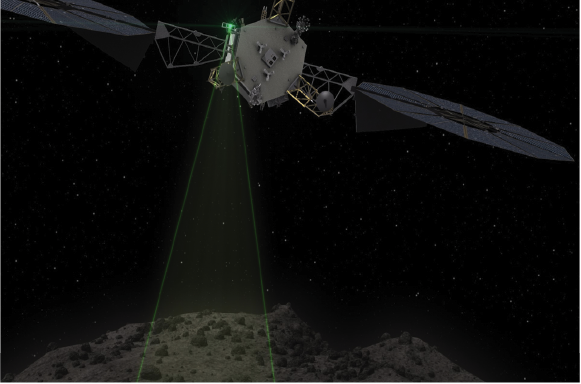Recently there has been a push in the space mining community to tackle the laws surrounding who can claim what in outer space. This push has been spearheaded by professors at the Colorado School of Mines, including Angel Abbud-Madrid, Ian Lange, George Sowers and Morgan Bazilian. Recently, they published a paper in the journal Issues in Science and Technology, where the authors called for new policies to be implemented to advance space mining. So exactly what new policy goals is the paper calling for and what is the current policy in place? The answer lies within the the Outer Space Treaty.
The Outer Space Treaty, also known as the Treaty on Principles Governing the Activities of States in the Exploration and Use of Outer Space including the Moon and Other Celestial Bodies, was first signed in 1967 and has been ratified by 108 countries as of 2019. The treaty aimed to limit nuclear weapon and military activity on the moon, other celestial bodies, and in outer space. The treaty also declares that “outer space, including the Moon and other celestial bodies, is not subject to national appropriation by claim of sovereignty,” yet these same celestial bodies are free for exploration and use by all nations.
The treaty goes further to state any non-governmental organizations operating in space (i.e., private companies such as SpaceX or Lockheed Martin) are to be authorized and supervised by an overseeing government. Authors of the published paper have cited a tension that has developed over the seemingly confusing language, claiming “some groups have expressed concern over a perceived gap in the law that creates uncertainty, while others have expressed concern that use of space resources might be conducted or benefit only a few companies and space faring nations, and still others argue that the activity is illegal until a binding international regime is put into place to oversee it”.
This confusion stems from the fact that, if objects in space are meant to be unclaimed by anyone as the treaty says, there are no clear indications how companies make money by extracting a resource. On Earth, mining claims are made by companies and usually encompass a specified area where the resource may be found. This method allows for companies, who invest in finding the resources, to extract the resources they find. In space, if a company discovers a mineral deposit on the moon after spending billions of dollars to find it, any company can set up shop 5 feet away from where the original company is mining. This lack of rules disincentivizes companies from making the initial investment to explore the solar system and find new resources to extract.
Some of largest reasons behind the push for international legislative reform around space rights comes from the recent advances made in the space resources community. United Launch Alliance has recently said they will buy propellant for different prices depending on how deep into space the propellant is extracted. Roughly a week ago, Japan’s version of our NASA (JAXA) landed a probe on Ryuga, an asteroid 300 million kilometers away between the Earth and Mars. The value of Ryuga is valued at nearly $83 billion dollars of resources. The money is out there, and the technology is quickly catching up to what it would take to become economically feasible. No longer is space mining the work of science fiction. Multiple companies have popped up in the last decade with the goal of mining resources from the moon and asteroids.
Four principles are recommended to be taken into consideration by the authors of the paper. These include using “lessons from terrestrial extractive industries;” implementing “adaptive governance;” assuring “benefits rising from space resources development” benefit all of humanity and not just a single entity; and a “coordination of principles to inform domestic law.” As the paper concludes, space resources have the potential to spur the next economic revolution for humankind. It is important in the early days of creating this new industrial sector to develop policies, informed by sound scientific and engineering principles, that enable and encourage progress while anticipating some of the challenges ahead.


